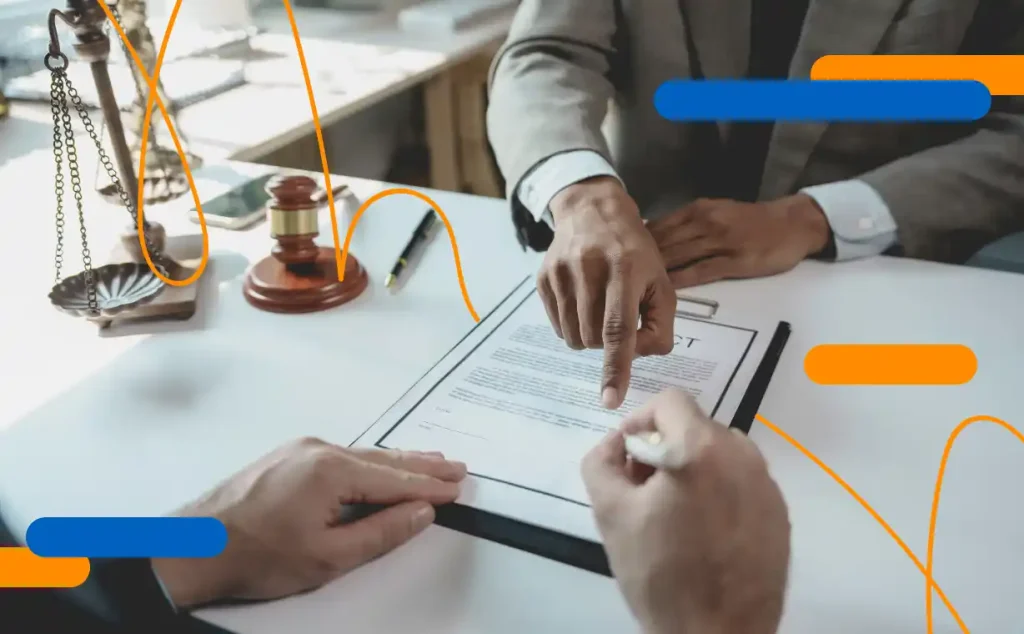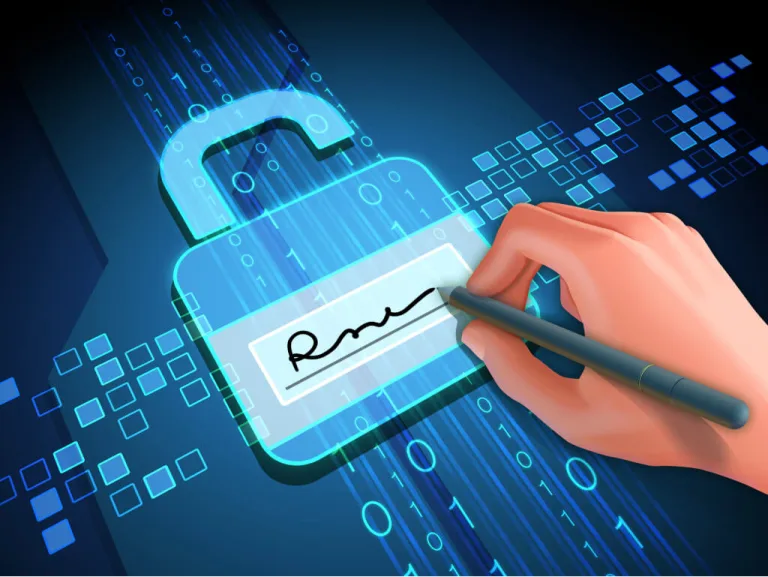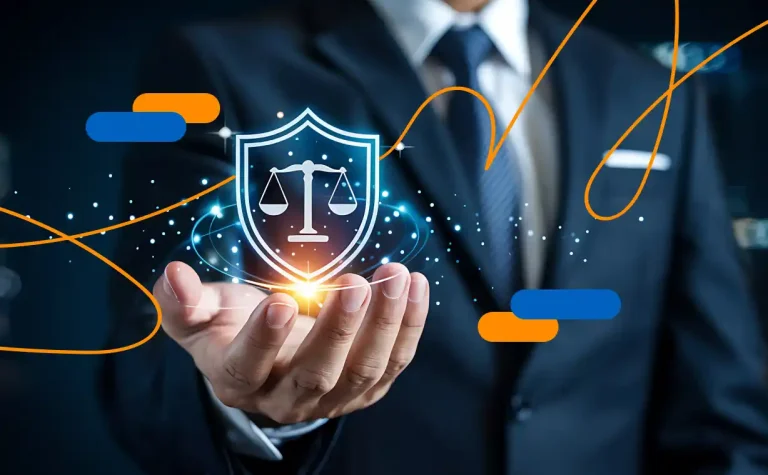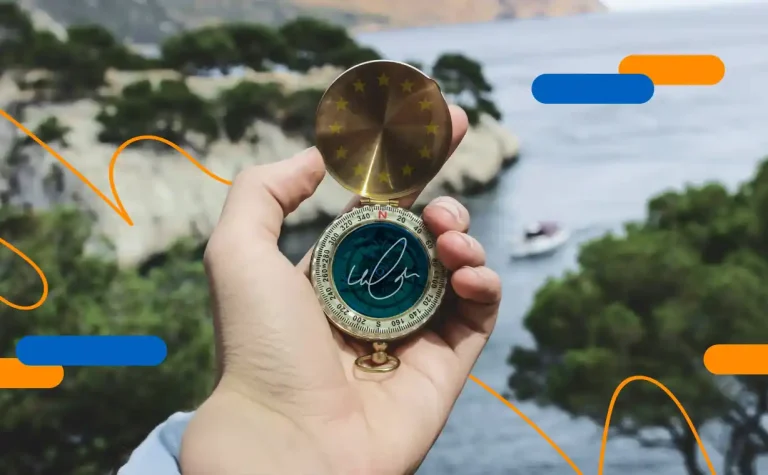Digitization is not an option, but a reality that affects many sectors, including the notarial function. Since May 2023, Spanish notaries have been able to provide their services electronically under Law 11/1023, which regulates the use of digital media in certain notarial and commercial acts.
With this regulation, electronic signatures before a notary become a possibility in Spain. Thanks to this, citizens can sign public notarial deeds electronically, without having to go to the notary’s office in person.
Today we explain how this process works and what requirements are necessary for the digitization of the notarial sector.
How does this process work before a notary?
The notarial electronic signature process combines the digital authentication of the parties appearing, the use of a qualified electronic certificate, and direct verification by the notary via secure videoconferencing. It includes the following steps:
Request an appointment with the notary
When requesting an appointment, there are two possible scenarios:
- The notary’s office opens the appointment
- The client initiates the appointment
In the first case, the client must make an appointment with the notary and specify the type of appointment, i.e., whether they want it to be in person or remote, as well as which document they want to sign. To do this, it is essential that they are registered on the Notarial Citizen Portal; otherwise, it will not be possible. After verifying the data, an appointment will be made on the portal via videoconference.
In the second option, however, the client can request the appointment directly on the Notarial Portal for Citizens. Once all the documentation has been completed and provided, the notary can arrange the signing, validate the documentation, and approve or cancel the appointment.
Granting of the notarial deed by videoconference
The notary verifies the will and identity of the parties; therefore, the parties must have previously uploaded their identity documents to the Notarial Portal for Citizens. At the start of the videoconference, the notary will check that the signatory does indeed match the document provided.
The master deed will then be read; the notary will open the document and share it on screen so that the other parties can also see and read it.
Signing a notarized deed digitally before a notary
After reading the deed, the notary will enable each of the parties to sign by clicking on a green button. At this point, they can complete the transaction using a digital certificate issued by the Citizen’s Notarial Portal, which will be valid for a limited period of time and only for that document and act; or with a certificate issued by a third party, such as the FNMT. Once completed by the parties, the notary can authorize the deed with their digital notarial signature.
Frequently asked questions about notarial electronic signatures
Before taking the plunge and choosing this option, it is normal to have certain doubts about how to do it effectively and smoothly:
Can I choose any notary?
If you want to sign a document digitally, you can choose any notary to do so. There are no restrictions on territorial jurisdiction, so each person can choose the notary they consider most appropriate or trustworthy.
How many documents can be processed in a single appointment?
For now, when signing documents in a digital notarial appointment, a maximum of four documents is established. If you need to process more documents, you will have to make a new appointment.
In any case, this represents a significant advance in the management of notarial procedures, especially those intended for the banking sector, where documents can be completed in batches of four.
Can I still go in person when I need to?
Yes, you can continue to attend in person. Law 11/2023 allows operations to be carried out digitally in the cases it provides for; however, this does not oblige you to always do so digitally.
In the event that there are parties involved in the same document who wish to attend the notary’s office in person and others who wish to do so remotely, both parties may carry out the operation as they wish, either in person or remotely.
Trust: key to electronic notarization
However, for this new system to be successful, there is one fundamental factor that must be considered: digital trust. In other words, secure and certified technological tools. Adopting them is key to ensuring the integrity of the process.
Viafirma’s advanced and qualified electronic signature solutions enable traceable, auditable processes that comply with the relevant European regulation: the eIDAS Regulation. Our technology ensures:
- Robust authentication
- Integrity and custody of signed documents
- Traceability for audits and regulatory compliance
- Compatibility with document management platforms
Trusted technology for the transformation of the notarial sector
With more than 25 years of experience, we have promoted the digitization of legal procedures and notarial acts, strengthening ties with institutions and legal professionals. With our digital solutions, the transition to a more efficient digital environment in the legal sector is much easier. Companies and professionals can manage their documents with full legal validity, reducing time and travel. Would you like to know more? Contact us and our team of professionals will help you with whatever you need.




